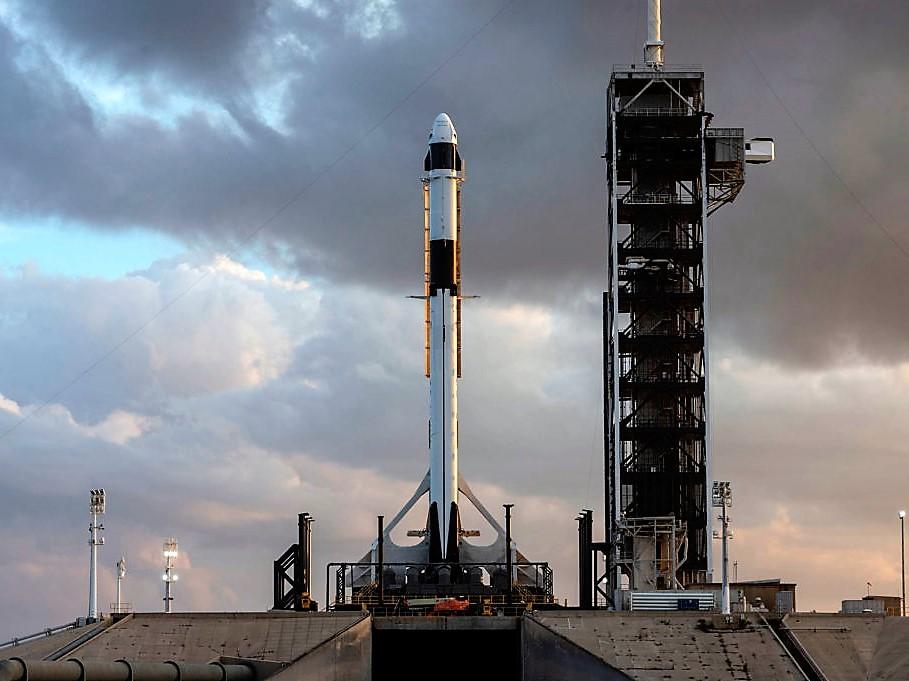SpaceX Crew Dragon set for historic launch paving way for future manned space travel
Nasa describes launch as the 'dawn of a new era'

Your support helps us to tell the story
From reproductive rights to climate change to Big Tech, The Independent is on the ground when the story is developing. Whether it's investigating the financials of Elon Musk's pro-Trump PAC or producing our latest documentary, 'The A Word', which shines a light on the American women fighting for reproductive rights, we know how important it is to parse out the facts from the messaging.
At such a critical moment in US history, we need reporters on the ground. Your donation allows us to keep sending journalists to speak to both sides of the story.
The Independent is trusted by Americans across the entire political spectrum. And unlike many other quality news outlets, we choose not to lock Americans out of our reporting and analysis with paywalls. We believe quality journalism should be available to everyone, paid for by those who can afford it.
Your support makes all the difference.SpaceX is preparing for a historic test flight of its Crew Dragon spacecraft to the International Space Station (ISS).
The launch is set for 2.49am EST (7.79am GMT) on 2 March at Nasa's Kennedy Space Centre in Florida, the same site where astronauts first launched to the moon on the Apollo 11 mission in 1969.
It will mark the first time that a commercially built and operated American rocket and spacecraft designed for humans will launch to the ISS, and while there will be no astronauts aboard the Crew Dragon capsule for Saturday's launch, the test flight is expected to pave the way for manned missions later this year.
In place of a human astronaut, SpaceX will send a spacesuit-clad mannequin equipped with an array of sensors that will help provide key data for future missions. The Crew Dragon capsule will remain attached to the ISS until 8 March, when it will detach and land back on Earth.
No launch date has been set for the manned missions to the ISS, though they could take place as early as April.
Nasa will send astronauts Bob Behnken and Doug Hurley to the space station using the Crew Dragon, with a further two astronauts following later this year.
Nasa described the manned missions as the "dawn of a new era" of space exploration, with plans to eventually send astronauts to Mars.
"This will be the first uncrewed flight test of NASA’s Commercial Crew Programme and will provide data on the performance of the Falcon 9 rocket, Crew Dragon spacecraft and ground systems, as well as in-orbit, docking and landing operations," Nasa officials wrote in a blog post ahead of the launch.
"Following each flight, NASA will review performance data to ensure each upcoming mission is as safe as possible. After completion of all test flights, NASA will continue its review of the systems and flight data for certification ahead of the start of regular crewed flights to the space station."
Previous SpaceX launches have been hampered by weather, though with less than 48 hours to go until the launch, meteorologists with the US Air Force's 45th Weather Squadron predicted an 80 per cent chance of favourable conditions.
Live coverage of the launch will be broadcast by both Nasa and SpaceX through their websites on 2 March
Join our commenting forum
Join thought-provoking conversations, follow other Independent readers and see their replies
Comments